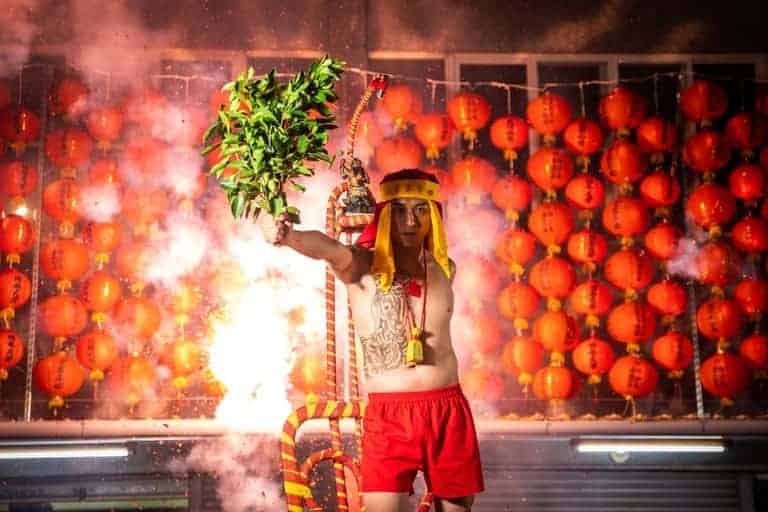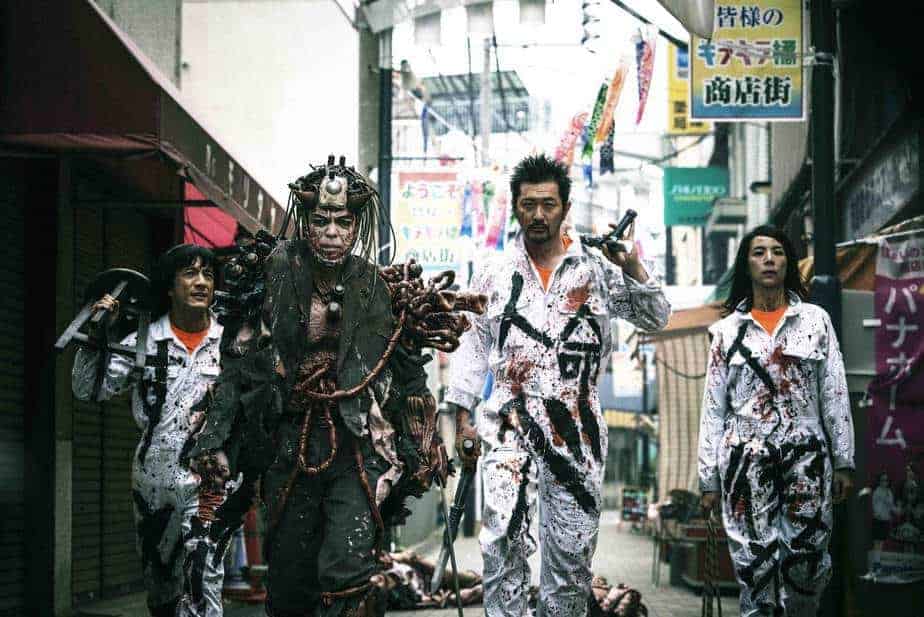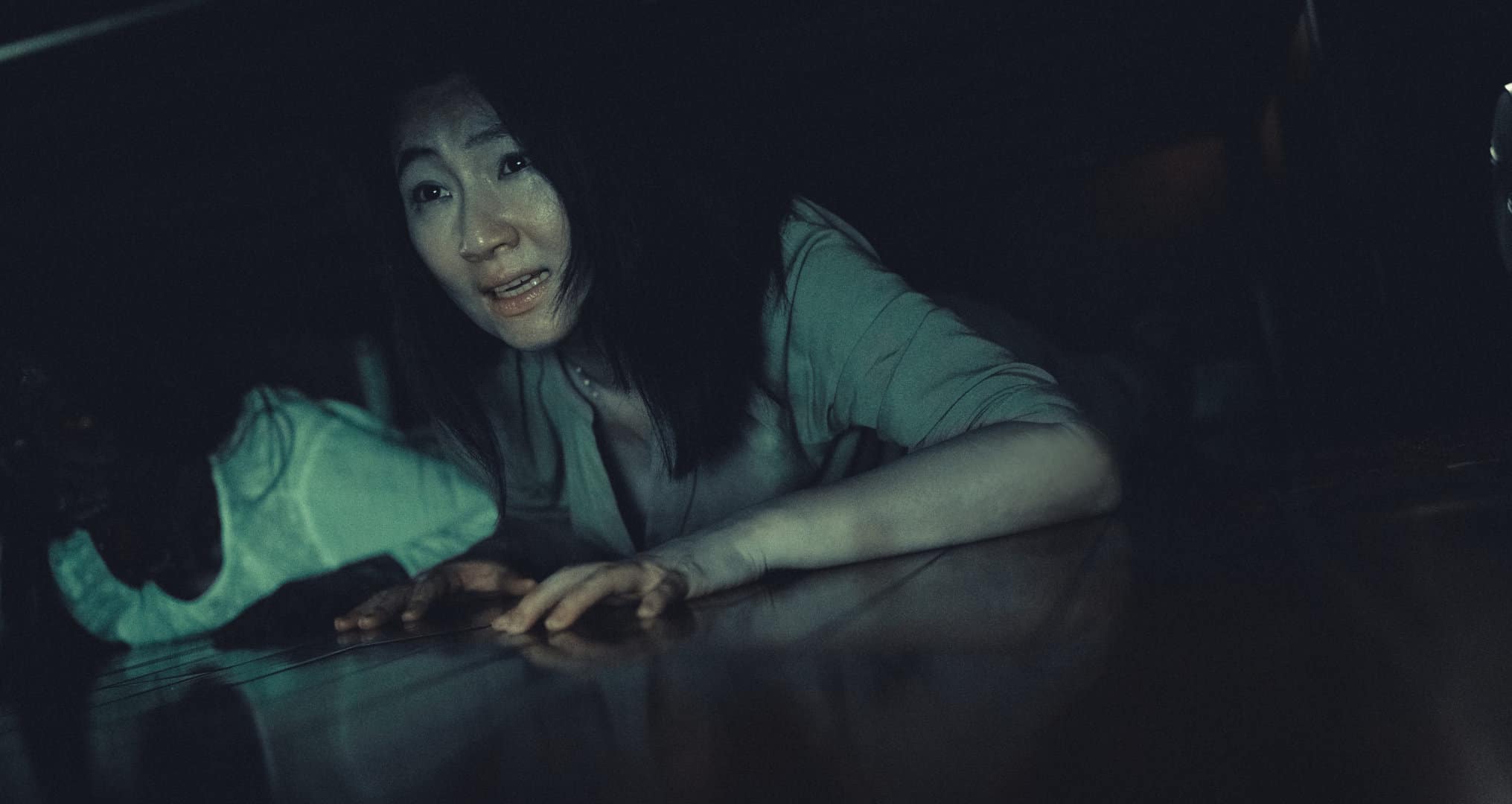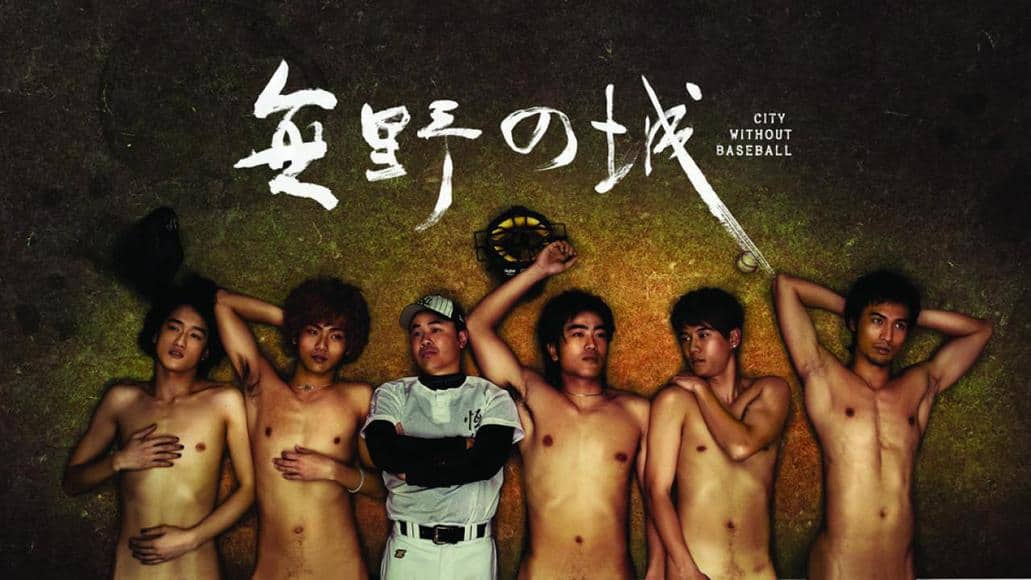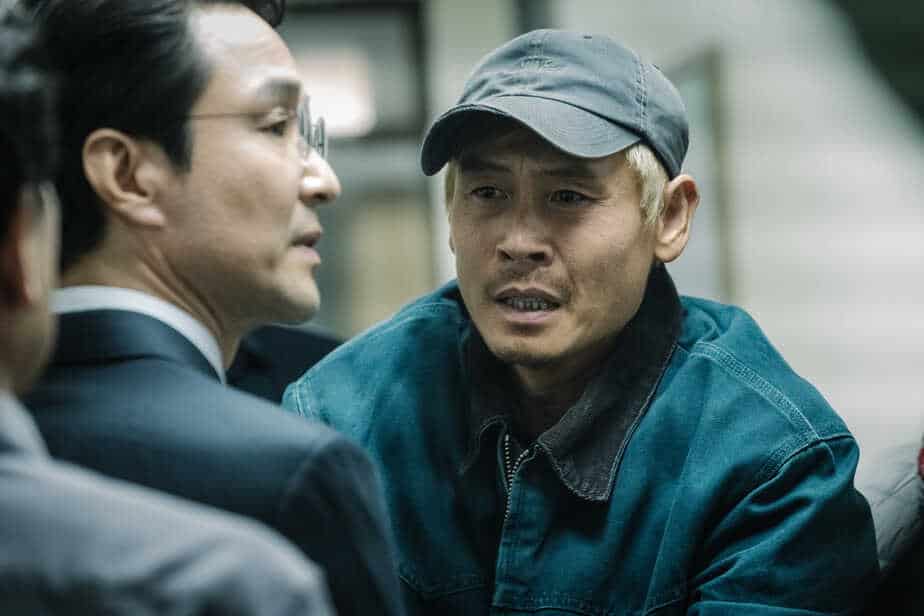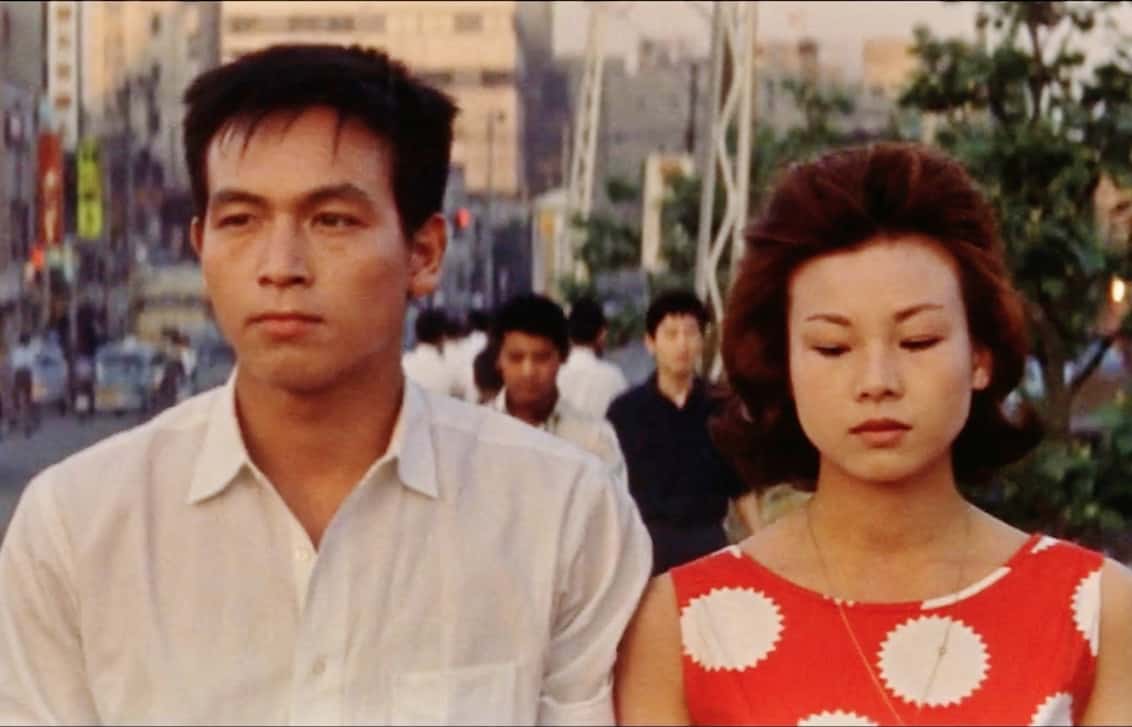Han Dan is a rather impressive but also very dangerous ritual in Taiwan, where half-naked young men stand on a palanquin holding a kind of bouquet while real firecrackers are tossed at them. The practice supposedly brings prosperity and fortune and also highlights the bravery of the participants, who also suffer burns in the whole of their body during the procedure. “Han Dan” uses this tradition as a base to present a tale about male friendship.
“Han Dan” is screening at New York Asian Film Festival (NYAFF) 2019

The story begins in 1996, and revolves around two young men whose life follows completely different paths. A-yi is the personification of “slick”, being handsome, strong and having a gorgeous girlfriend named Xuan-xuan, who stays faithful to him despite the fact that she has moved far away, to Taipei. Lin Jen-kuen is timid and shy, two characteristics that are heightened even more by an inferiority complex instigated by the fact that he is a garbage collector, just like his mother. Jen-kuen also has a thing for Xuan-xuan and is quite jealous of A-yi, a sentiment that reaches its apogee when the two men join the group for performing in Han Dan, and A-yi takes center stage. As his shame and jealousy piles up, Jen-kuen decides to take revenge, but through a rather unfortunate turn of events, his actions end up with Xuan-xuan dead, and A-yi with a mutilated hand and loss of hearing. Years later, A-yi is a destroyed man who has turned into a hopeless drug addict, while Jen-kuen is the protagonist of Han Dan, and about to become a teacher. However, in another strange decision that has him clashing with his mother, he decides to open a space for garbage disposal and to help A-yi get back on his feet. Their path is quite hard but eventually leads to friendship. When the local mafia and the truth come to the fore, though, things take a turn for the worse again.
Huang Chao-liang directs a film that focuses on two interconnected axes. The first one is the ritual of Han Dan and its implications, which is used as the trigger for the theme of male friendship, and in combination, for the concept of manhood in modern days.
Regarding the ritual, Huang presents it in all its violent, sadomasochistic even glory, as we watch the two protagonists receiving extensive, occasionally permanent burns on their body, while feeling extremely proud for their effort, recipients of glory in essence. The fact that their boss is a strict man who does not seem to care much about their well-being, and the fact that the people attending the ritual actually cheer for the men, also adds to this sense, that one of the greatest assets of manhood is to tolerate pain in the face of glory.
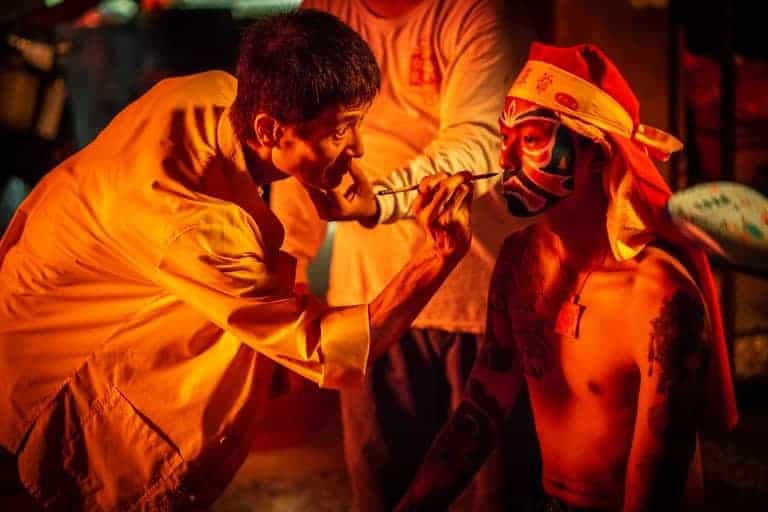
The second axis, however, seems to highlight the consequences of the aforementioned concepts as in the second time frame, both men appear broken, although for different reasons. At the same time, and on a completely different approach, Huang presents the benefits of friendship between men, and particularly that it can truly change people for the best, when dedication and self-sacrifice are involved.
Both axes are quite well presented, and actually carry the film for the majority of its 125 minutes. However, there are some issues with the writing. The fact that nobody realizes (including the victims, the crowd, and the boss) what Jen-kuen has done in the first part is somewhat naive, while the secondary plots are underdeveloped, particularly the one revolving around the love of a prostitute for Jen-kuen. The organized crime subplot works a bit better, but I feel it could still presented in a most engaging manner. Furthermore, the film occasionally takes a rather melodramatic turn that does not help the narrative, with Cheng Jen-shuo's performance as A-yi also mirroring this aspect, through occasional, unfitting excessiveness.
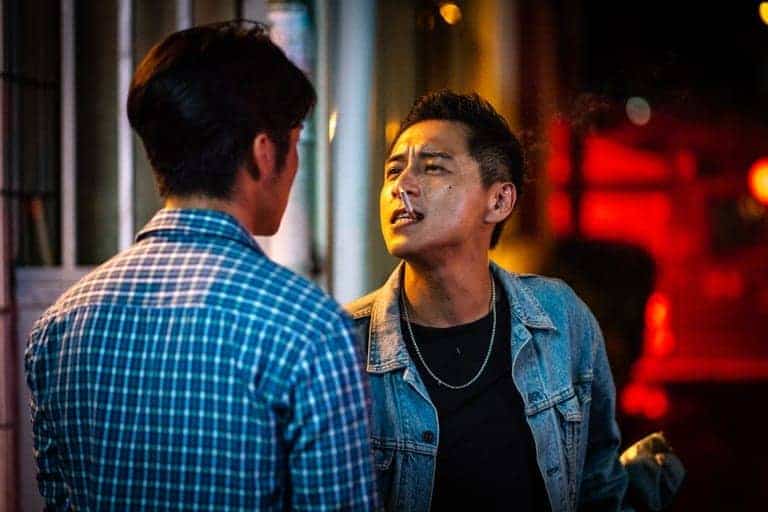
On the other hand, George Hu as Jen-kuen gives a more measured performance that benefits the narrative to the fullest, while the chemistry of the two and particularly the ever-changing balance between them is one of the film's best assets.
Technically, the movie is impressive. Yan Rymsha and Chao Chung-wang.have done an exceptional job in the cinematography, with the presentation of the ritual being exceptional and the artistry expanding to the majority of the many different settings the story takes place. The coloring is also impressive and results in a number of images of extreme beauty, and the same applies to the work done in the sound and the visual effects. Huang's own editing keeps the story flowing in a relatively fast pace, although, as I mentioned before, some parts could be either trimmed completely or given more time in the narrative. “Han Dan” is visually impressive and the overall presentation of the ritual is exceptional, but in the end, I felt that a bit of a better writing would allow the movie to realize its full potential, since the majority of its elements are positive.


